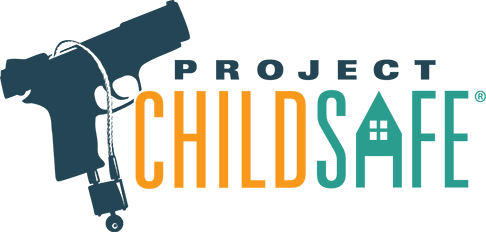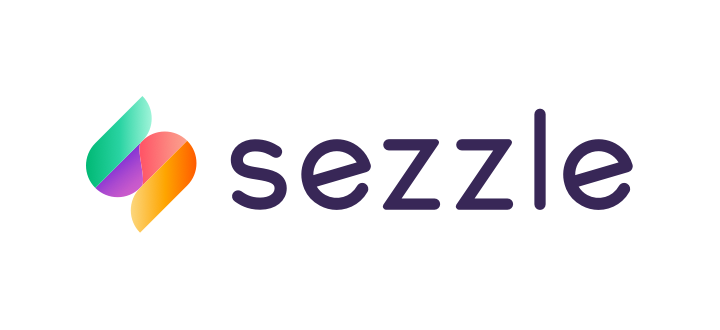Search
Cart
There are no items in your cart.
Login
Curbing Radicalization By Focusing on Analytical Thinking
In our ever-evolving society, characterized by both deepening and widening social and political divides, the role of education has never been more significant. Now, we find ourselves grappling with a critical issue: the growing susceptibility to radicalization at all levels of society. Radicalization is the process by which an individual or group comes to adopt increasingly extreme political, social, or religious ideologies, often to the extent of undermining mainstream norms and values.
Radicalization usually yields destructive outcomes. It strips individuals of their unique perspectives and thought processes, leading to homogenization of thought and making them prone to manipulation. This is because extreme ideologies often encourage uncritical acceptance of certain ideas and discourage open intellectual exploration. Therefore, individuals caught in the web of radical ideologies tend to lose their ability to think independently and critically, making them an easy prey for various puppeteers orchestrating public opinion and actions.
Today, the world faces numerous challenges: rapid technological advancements, an overwhelming flow of information, and increasing social and political polarization. It is in this context that the implementation of a robust education system, which prioritizes non-politicized analytical thinking and fosters a comprehensive understanding of societal events based on relevant historical analysis, becomes our most potent defense and our most promising path forward.
.
Dogmas versus Axioms
Dogmatism refers to an unwavering and closed-minded attitude characterized by a firm adherence to certain beliefs or doctrines, often marked by a refusal to consider alternative viewpoints or evidence. It involves a rigid certainty in one's own convictions, dismissing differing perspectives without critical examination.
Dogmas, the beliefs or sets of beliefs upheld in a dogmatic manner, are often presented as axioms. However, axioms are self-evident or universally accepted principles that serve as foundational truths within specific systems of thought or reasoning. These are used in systems like mathematics, logic, and also in philosophical, ethical, and even sociopolitical contexts. For instance, the principle "all people are created equal" could be considered an axiom in a human rights context.
While both axioms and dogmas are accepted without initial demonstration or proof, the way they are handled within their respective systems distinguishes them. Axioms, though accepted as true, are a part of an open system where their utility and coherence within that system can be questioned, analyzed, and criticized. Dogmas, however, often resist any form of questioning or criticism, and are maintained even in the face of contradictory evidence.
Dogmas can be seen as a form of pseudo-axioms in this sense. They mimic the unquestionable nature of axioms but lack the same level of inherent validity or logical grounding, given their resistance to critique or change. While axioms form the foundation upon which logical or mathematical systems are built, allowing for the expansion and deepening of understanding within those systems, dogmas often form inflexible pillars that uphold a belief system without allowing room for evolution or development.
Both terms, dogma and axiom, are used in the realm of belief systems and epistemology, but they are distinct in their characteristics and the ways they contribute to their respective systems. Axioms, accepted as true within a particular framework, facilitate a process of exploration and discovery, allowing for subsequent principles or truths to be deduced. Dogmas, on the other hand, are presented as self-evident truths that, despite lacking inherent evidence or logical foundation, are accepted based on authority, tradition, or faith. The key difference lies in the open-ended, evolving nature of axiom-based systems versus the closed, static nature of dogmatic systems.
.
Radicalization and Its Manifestations
Radicalization is the process by which an individual or group comes to adopt increasingly extreme political, social, or religious ideologies, often rejecting or undermining the status quo or contemporary ideas and expressions of the nation. However, it's essential to understand that contemporary ideas and expressions of a nation can themselves be radical if they challenge or seek to revise long-held, foundational truths or axioms. Radicalization is not inherently negative and can lead to positive social changes. Nevertheless, it becomes problematic when associated with intolerance, violence, the promotion of unproven ideas as axiomatic truths, or the attempt to repeat what’s been proven to result in massive tragedy.
Far-right ideologies often encompass extreme forms of ethnonationalism, xenophobia, and anti-globalism, appealing to individuals who might feel marginalized, displaced, or threatened by social change. It is important to note that while concerns about national interests or cultural integration can be valid and reasonable, far-right ideologies often manifest in exclusionary and discriminatory practices that undermine basic principles of equality and human rights. It is this extreme and unreasonable inclination that characterizes the far-right and distinguishes it from more moderate perspectives.
On the other hand, far-left ideologies often center on perceived social inequalities and systemic injustices, attracting individuals who believe radical change is necessary to rectify these issues. While addressing social inequalities and systemic injustices is a legitimate concern, it is important to recognize that far-left ideologies tend to manifest in extreme and dogmatic approaches. These ideologies often reject or undermine established institutions and advocate for revolutionary or transformative measures. While their said intention is to pursue greater equality and social justice, the extreme inclination of far-left ideologies leads to the suppression of dissenting views, disregard for personal freedoms, and the imposition of rigid ideological conformity.
Despite their apparent ideological differences, both far-right and far-left radical groups share a common attribute: dogmatism. They tend to promote their beliefs as unquestionable truths and dismiss alternative perspectives, stifling intellectual diversity and discourse. This dogmatism can be especially insidious in the case of far-left ideologies, as it is often articulated using sophisticated language and couched in academic discourse, lending it an air of legitimacy and obscuring its underlying intolerance.
.
Analytical Thinking: The Most Potent Defense
Analytical thinking can be described as a method of problem-solving that involves breaking down complex problems into manageable parts, analyzing these components, and then synthesizing them into a coherent understanding or solution. This process requires an ability to dissect information objectively, evaluate its relevance and reliability, recognize patterns, and draw conclusions based on the collected data. Analytical thinking is a cornerstone of many disciplines such as mathematics, science, philosophy, and even literature. Its presence or absence can significantly affect how an individual perceives and interacts with the world.
Unfortunately, this pivotal skill set is often underemphasized in many contemporary education systems, which frequently lean towards rote learning and standardized testing. This neglect has far-reaching implications as a lack of robust analytical thinking abilities can leave individuals vulnerable to manipulation and radicalization. The development of strong analytical thinking skills acts as a bulwark against such influences, as it equips individuals with the tools necessary to question, understand, and assess the validity of the information they encounter.
In an age dominated by digital technology, where the flow of information is rapid and constant, the ability to dissect this information analytically is even more critical. A sea of data, ranging from the absurdly false to the profoundly true, inundates us daily. Without solid analytical thinking skills, it becomes incredibly challenging to navigate this information landscape, making individuals prone to falling into echo chambers or being swayed by radical ideologies.
Digital literacy, an offshoot of analytical thinking, plays an essential role in the modern world. It involves the capacity to find, evaluate, utilize, share, and create content using information technologies and the internet. Integrating digital literacy into the curriculum equips students with the ability to discern reliable from unreliable sources. This not only protects students from misinformation but also fosters a more discerning and informed citizenry.
More than ever, the focus of education should extend beyond the traditional curriculum, nurturing these skills through pedagogical strategies such as inquiry-based learning, debates, and case studies. These strategies are particularly effective in promoting analytical thinking as they demand an active, rather than passive, engagement with learning material. They encourage students to question, critique, and form their own understanding, promoting intellectual independence and resilience.
Inquiry-based learning encourages students to ask questions, investigate, and use their natural curiosity to drive their learning and discover new insights. Debates, on the other hand, help students articulate their thoughts and opinions while also learning to understand and respect other viewpoints. Case studies promote critical thinking by pushing students to apply theoretical knowledge to real-world scenarios.
Furthermore, the study of literature can also offer a powerful platform to hone analytical thinking skills. Literary analysis encourages students to delve beyond the surface, exploring themes, character motivations, and symbols, and understanding their broader philosophical and psychological implications. Similarly, understanding history through a critical lens allows students to see beyond the simple narrative of events and fosters a deeper understanding of the complexities of the past and present.
A strong emphasis on analytical thinking in education acts as a potent defense against the allure of radical ideologies. A well-rounded education system that nurtures these skills from an early age offers our most promising path forward. It empowers individuals with the ability to critically evaluate and understand the world, resist manipulation, and make informed decisions. By prioritizing the development of these skills, we can bolster our defenses against the forces of radicalization and pave the way for a more resilient and intellectually robust society.
.
The Role of Literature in Analytical Thinking
The study of literature can play a vital role in fostering analytical thinking. Traditionally, literature classes focus on understanding the sequence of events, main characters, and the overall storyline. While these are important elements, there's much more to literature.
Literature serves as a veritable treasure trove of philosophical and psychological insights. By exploring the themes, motifs, and symbolism within a text, students can learn to appreciate the complexity and diversity of human thought. This deeper engagement stimulates intellectual curiosity, promotes empathy, and encourages students to question their assumptions.
The study of poetry, in particular, can enhance students' ability to think analytically. Poetry, with its unique use of language, often relies on metaphor, simile, and other figurative devices to convey meaning at different levels. As such, understanding a poem requires an analytical reading between the lines, seeking the subtext and semantics beneath the literal words. This process can help cultivate students' abilities to understand nuance, interpret symbolism, and treat poetic phrases as separate linguistic units.
Furthermore, the combination of brevity and multi-level depth in poems can encourage students to appreciate the power of precise language and value the impact of every word choice. As they learn to analyze these choices, they can develop their critical thinking skills, learning to justify interpretations with textual evidence and consider multiple perspectives on the poem's meaning.
A shift is needed in how literature and poetry are taught. Teachers should move beyond mere plot summarization and literal comprehension to emphasize analysis, interpretation, and discussion. They could encourage students to debate characters' motivations, analyze themes and symbols, and connect the work to broader philosophical and psychological concepts. This approach fosters not only a love for literature and poetry but also an understanding of the multifaceted human condition. Of course, this means the teachers themselves need to be adequately qualified—true educators rather than mere curriculum renderers—but that’s a separate topic deserving of its own discussion.
.
The Potential of History in Fostering Analytical Thinking
Beyond literature, other disciplines such as history also hold great potential for fostering analytical thinking skills. History, too often taught as a rigid timeline of events or a single interpretation of past occurrences, could instead be used as a platform for critical analysis and inquiry.
Instead of focusing merely on dates and figures, history education should encourage students to question the causes and effects of historical events, assess the reliability and bias of sources, and critically evaluate different historical interpretations. This shift from rote memorization to critical analysis can help students understand that history is not a one-dimensional narrative but a complex interplay of perspectives, motives, and contexts.
Moreover, it can stimulate students to make connections between historical events and contemporary issues, enhancing their understanding of the present in the context of the past. By doing so, history becomes a living subject, continually relevant and instrumental in shaping informed citizens.
In this light, a systemic reform in how history is taught, shifting from fact-based learning to a more analytical approach, becomes essential. By engaging students in historical analysis, we can equip them with critical thinking tools that not only enrich their understanding of the past but also enhance their ability to navigate and understand the complexities of the present."
.
Pseudo-Intellectualism vs. True Intellectualism
The distinction between pseudo-intellectualism and true intellectualism is an essential part of understanding the current climate of ideological radicalization. The danger lies in their superficial similarities, as both involve an active engagement with ideas, theories, and concepts. However, the differences between the two are profound and fundamentally change the nature of their discourse.
Pseudo-intellectualism is characterized by its reliance on dogmas, demagogy, and sophism. The pseudo-intellectual uses jargon and complex language to confuse, rather than clarify, ideas. They often present their ideas as absolute truths, refusing to entertain alternative viewpoints or engage in genuine dialogue.
True intellectualism, on the other hand, is characterized by a genuine curiosity, a commitment to truth, and a willingness to engage in open and honest dialogue. True intellectuals are open to having their ideas challenged, are willing to change their minds in light of new evidence or arguments, and are dedicated to the pursuit of knowledge and understanding. They use language and theoretical references not as tools for dominance but for clarification, illumination, and further discussion. It's crucial for education systems to highlight these differences and nurture true intellectualism.
.
Addressing the Gap
Education systems must rise to the challenge of better cultivating students' analytical thinking abilities. Curriculum development should be geared toward building these skills from an early age and consistently reinforcing them throughout the educational journey. Teachers should also be trained in strategies to foster analytical thinking, such as inquiry-based learning, debates, and case studies. Digital literacy should be integrated into the curriculum, helping students navigate online information, discern credible sources, and understand the dangers of echo chambers and misinformation.
Literature education should also be enhanced to enable a deeper exploration of the philosophical and psychological dimensions of texts. Rather than a simple recounting of plot events, teachers should encourage students to engage in thematic analysis, character study, and the identification of underlying philosophies and motifs.
Equally vital is the transformation of history education from mere memorization of dates and events to the cultivation of analytical thinking. This involves encouraging students to critically analyze historical phenomena, explore cause-effect relationships, and draw patterns. By dissecting the past, students can understand the complexity of the present and anticipate future trajectories.
A new pedagogical approach is needed—one that encourages students to form connections between literature and broader societal, ethical, and philosophical contexts. By doing so, students can develop a well-rounded worldview, a deeper empathy for diverse experiences, and a greater capacity for critical thought.
.
The Link Between Education and Radicalization
Without well-developed analytical thinking abilities, individuals are less capable of critically evaluating the extremist narratives they are exposed to. They might struggle to identify biased or unreliable information, to question oversimplified or one-sided views, or to consider alternative perspectives. As a result, they become more susceptible to radicalizing influences.
The pathway to radicalization can differ based on a variety of factors, including educational background. For instance, far-left radicalization is often found among individuals with higher formal education, including those in academia, while far-right radicalization can be more prevalent among those who feel left behind by the current system. Regardless of the path taken, the end result is often the same: the adoption of a dogmatic ideology that is resistant to critique and closed off to other perspectives.
Analytical thinking is more than an educational outcome; it is a life skill, a defense against manipulation, and a tool for informed citizenship. By incorporating a more philosophical and psychological approach into literature studies and prioritizing the development of these abilities in our educational systems, we can equip future generations with the tools they need to resist radical ideologies and to navigate our complex world with discernment and wisdom.
Education's goal should be to foster an intellectual equilibrium, an ability to weigh multiple perspectives and dissect a wide array of information critically. This equilibrium empowers individuals to remain resilient in the face of manipulative ideologies while cultivating a broader understanding of the world.
Our society stands at a critical juncture. With the threats posed by misinformation, digital manipulation, and rising polarization, our most potent defense is a well-equipped education system that emphasizes analytical thinking and holistic understanding. It's time we recognized and prioritized this in our educational systems, for it is our most promising path forward.
.
(by Edward Meyman)
NEWSLETTER










Leave a Comment